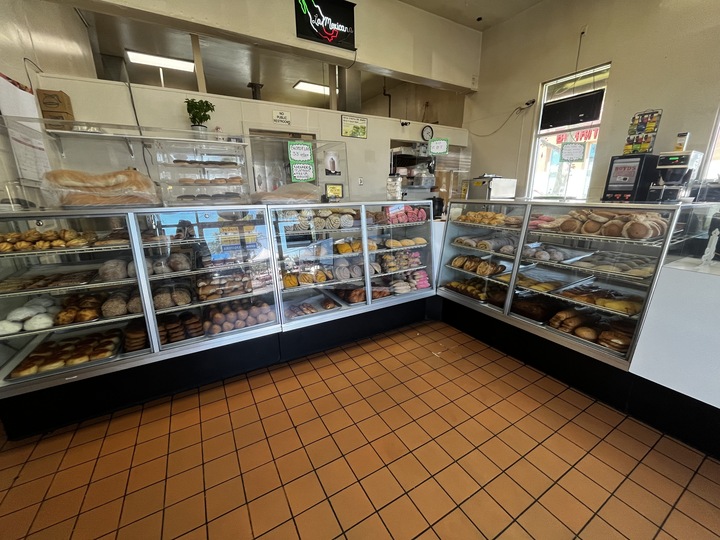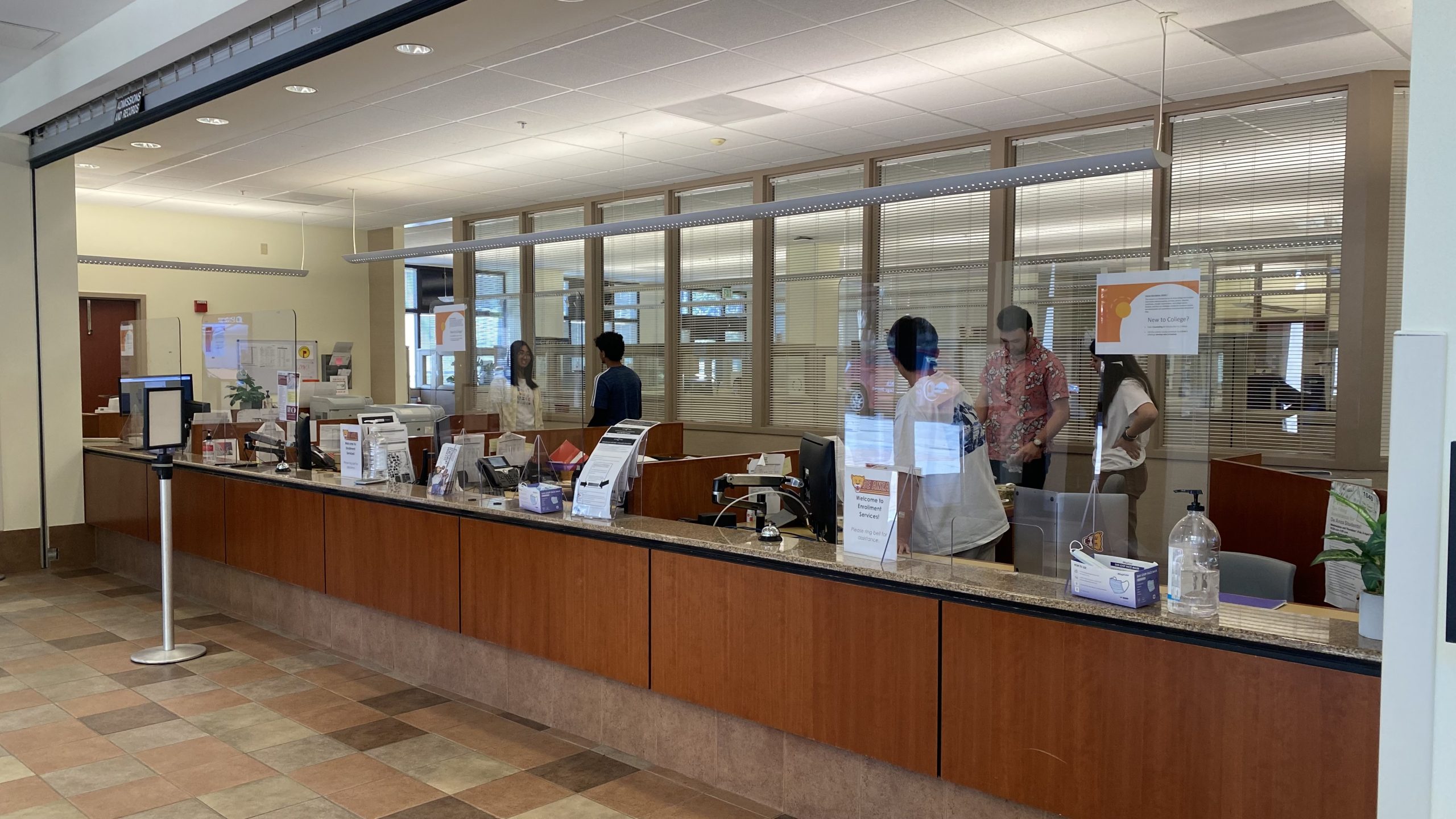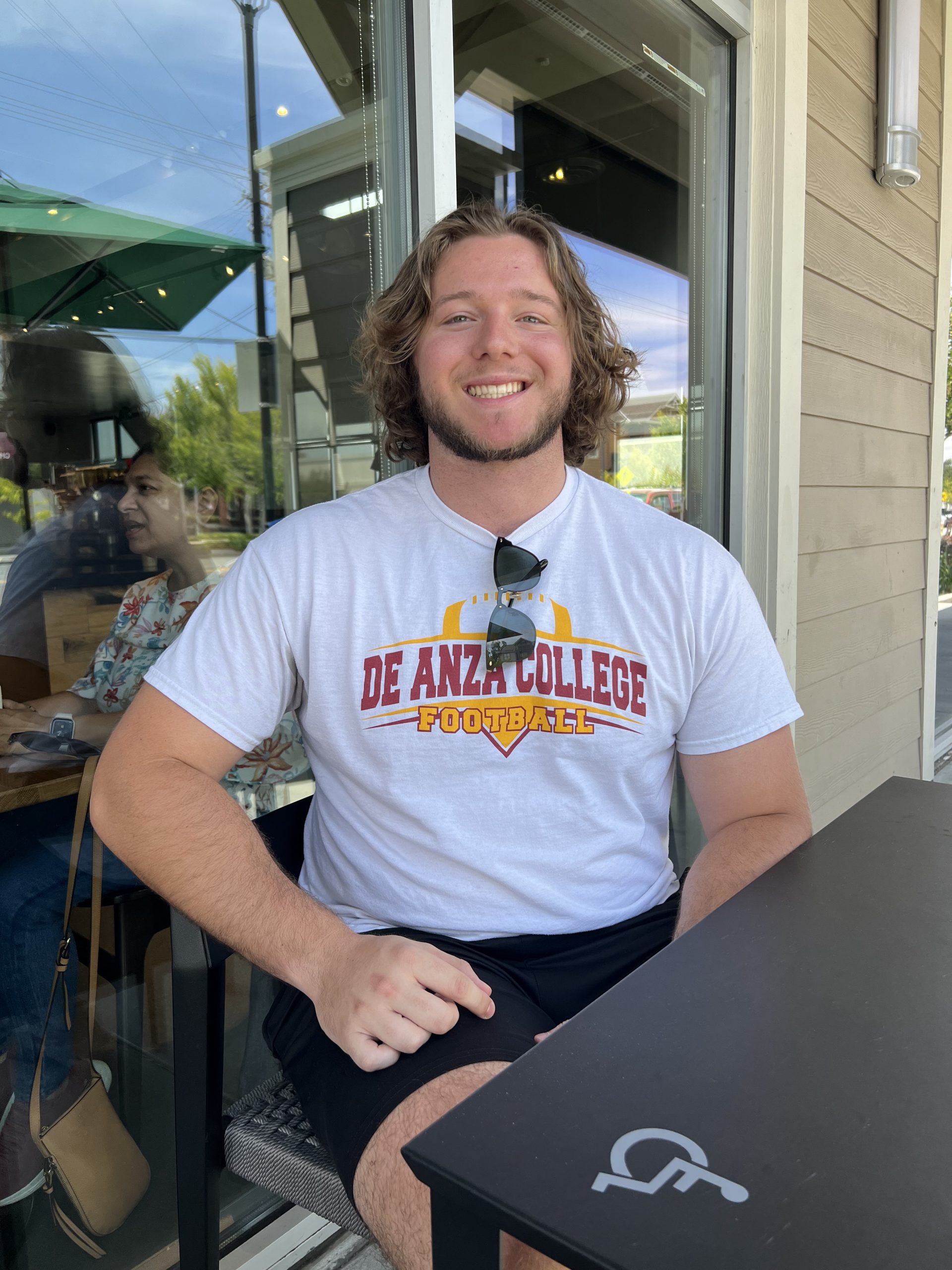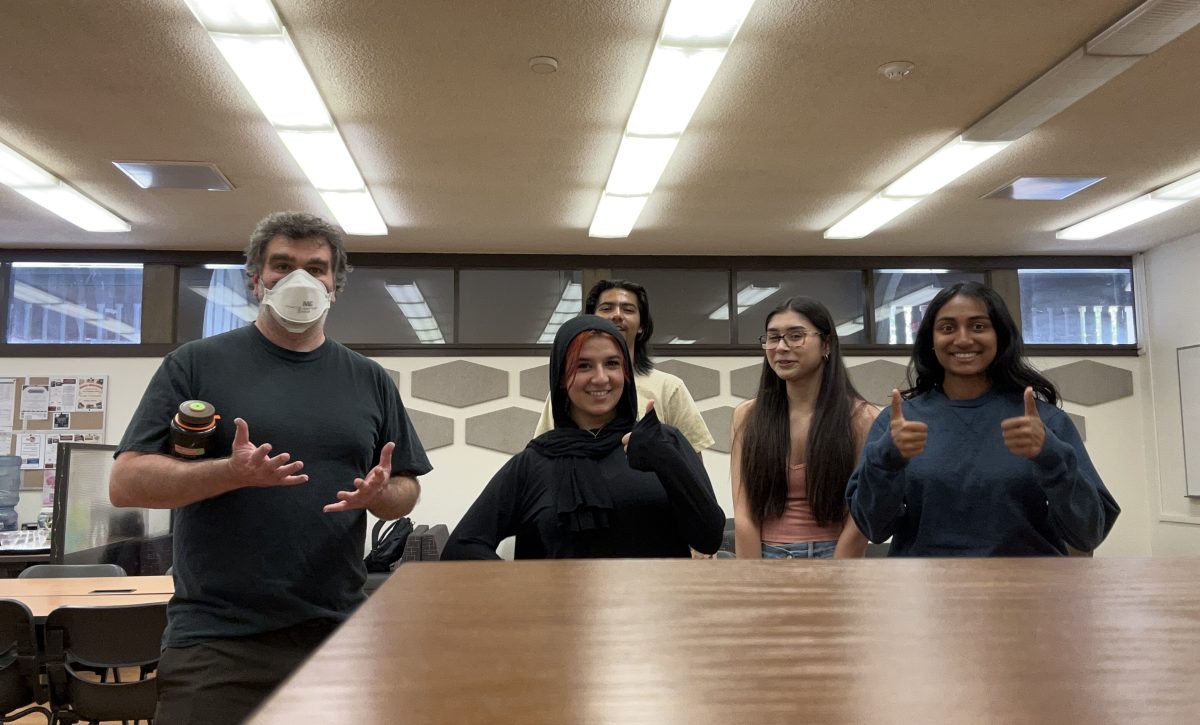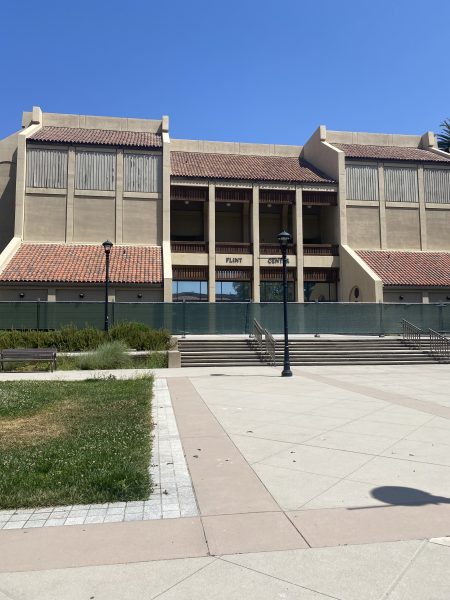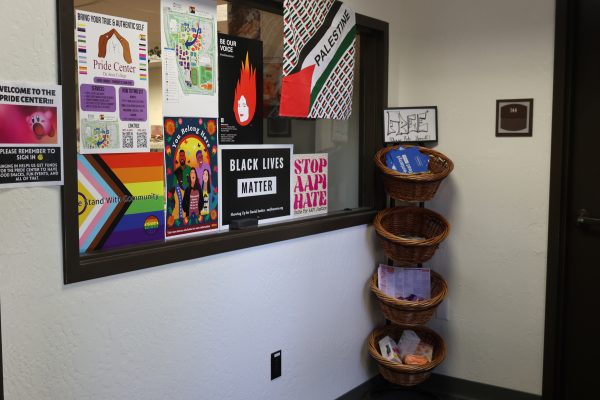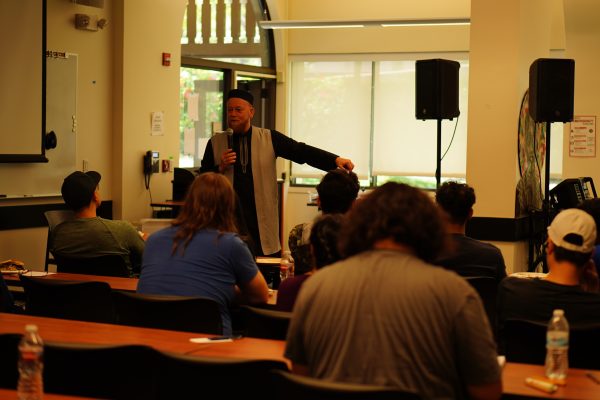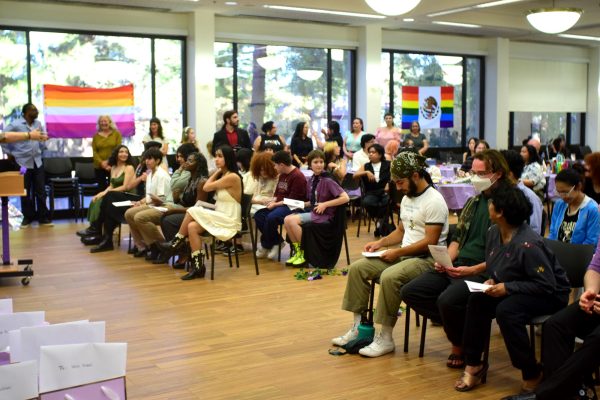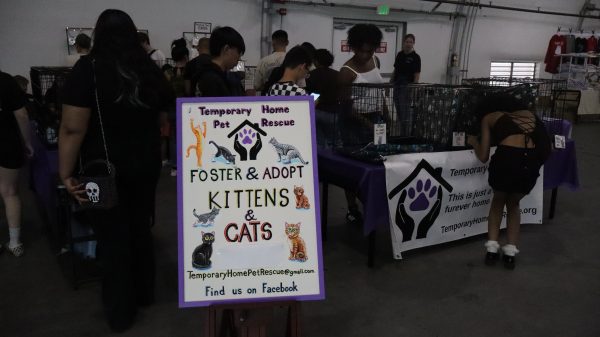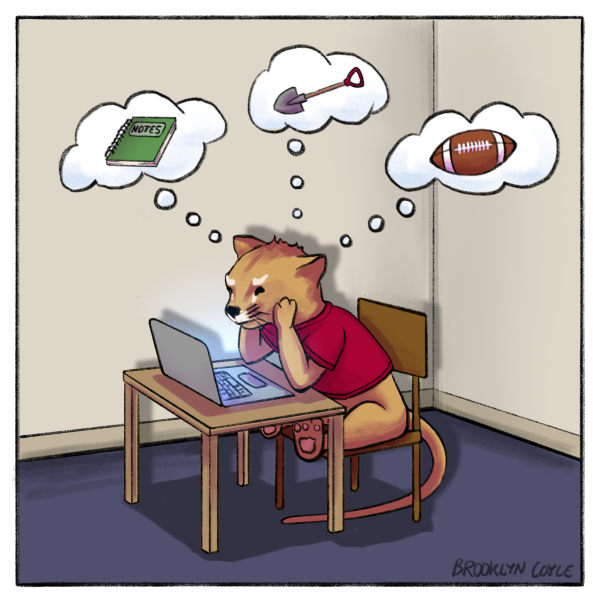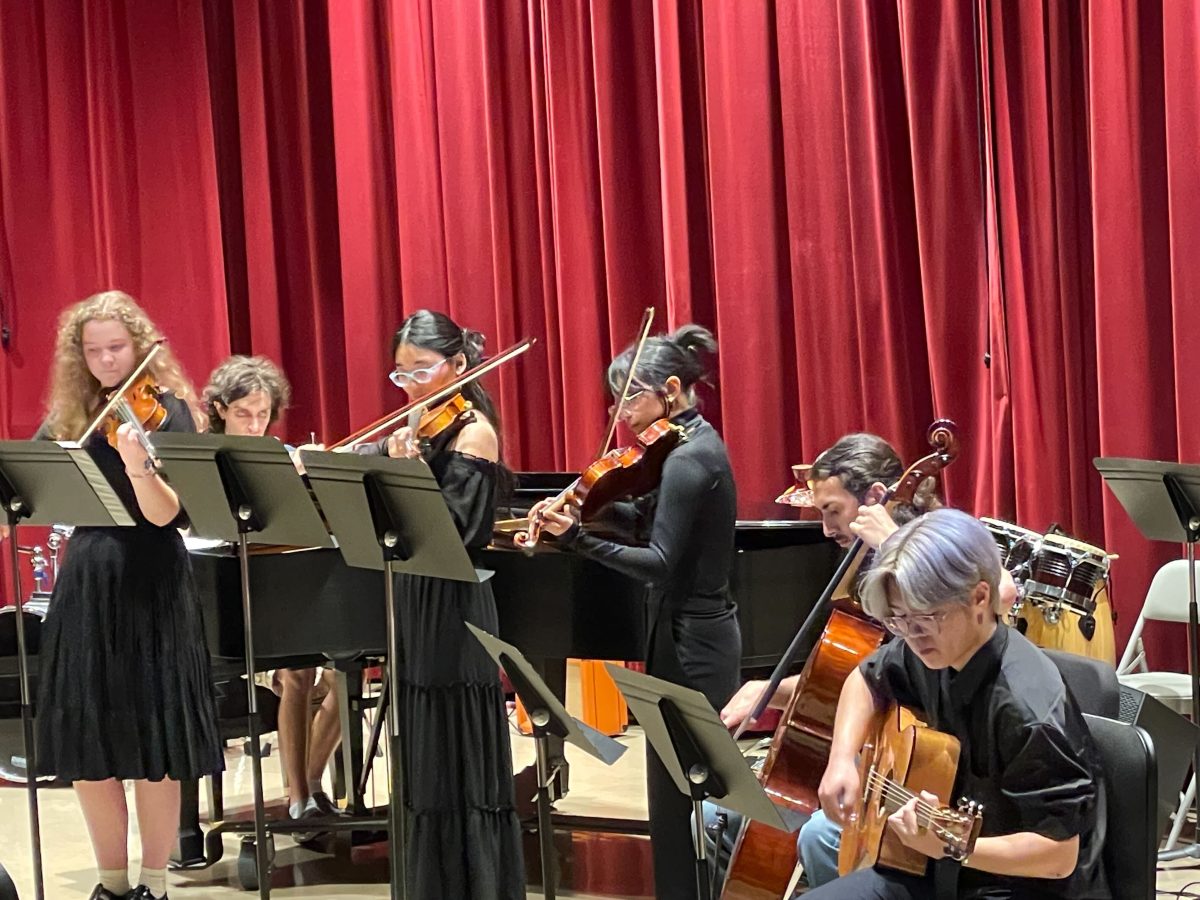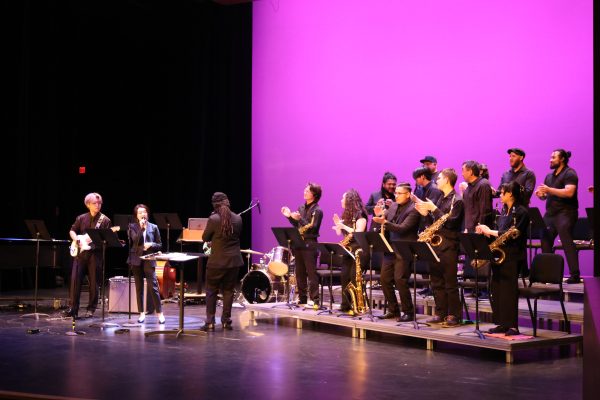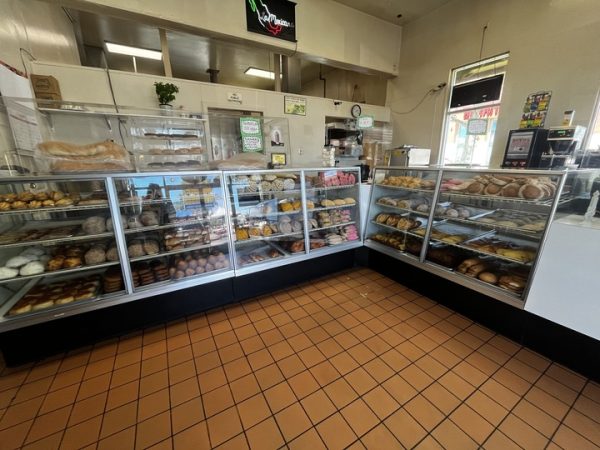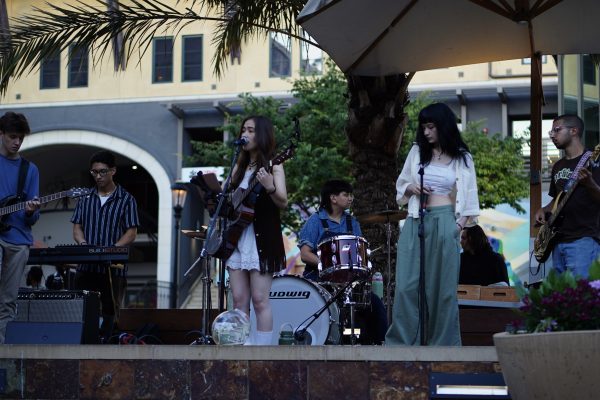The secret lives of single parent students
Rebecca Cohen, 32, biology major, picks up her son Joseph, 4, from the De Anza College Child Development Center.
November 25, 2013
It is 9 p.m. and Rebecca Cohen is finally ready to start her homework after putting her three kids to bed. She is lucky if she gets to finish her homework by 2 a.m. and get a full four hours of sleep.
“Being a parent is a 24/7 responsibility and balancing effective study time along with running a household is always a challenge,” said Cohen.
The 32-year-old, biology major, is one of the 27 percent of “nontraditional” community college students who have children, according to a report from the Institute for Women’s Policy Research.
Many more single parent students on campus are unidentified and do not want to be identified because of the stigma attached to being in their situation, said George Robles, associate coordinator of De Anza’s Cooperative Agencies Resources for Education, a program that provides services and resources for single student parents on campus.
“When people think of young parents, they think they’re people who couldn’t control themselves and couldn’t keep it in their pants,” said Nicholas Gonzalez, 22. “I think a sense of irresponsibility comes with it.”
Gonzalez said he is studying to become a math teacher so that he can give his daughter a life with more opportunities.
One of the biggest assumptions people have of students with kids is that they had their children out of wedlock and at a young age, said Cohen, who had delayed her education due to being in active military service.
Single parent students also face barriers that other traditional students may not have while pursuing their education, said Sabrina Stewart, program coordinator at the Occupational Training Institute.
For Gonzalez, balancing school, work and fatherhood allows him little sleep and time to spend with his 3-year-old daughter.
“I even feel guilty sleeping, because I should be spending that time with my daughter” Gonzalez said.
Linda Koyama, administrative assistant at De Anza’s Child Development Center, said the student parents she comes in contact with are in essence taking on two or three full-time jobs.
The demands of being a single student parent can become all too overwhelming. According to the same IWPR study, being a parent increases the likelihood of dropping out of college without completing a degree.
“There were so many times I would cry to my mom and say I want to just stop going to school or change my major, but my mom would encourage me to keep going,” Gonzalez said. “It gets really difficult, but I see that it will pay off at the end.”
Just having someone willing to lend an ear in class is a great therapy for single student parents, said Cohen.
But finding emotional support in peers without children can be as difficult to come by as finding affordable child care.
With exorbitant child care and living costs, especially in the Bay Area, most student parents can only look for assistance in order to continue pursuing their education, said Daniel Dishno, Occupational Training Institute supervisor.
Angela Pun, 28, nursing major, said the only way she is able to balance all of her responsibilities is because her family and friends are always willing to help babysit for her.
Those who do not have the family support have to rely on other child care resources.
For single parents who work full-time for minimum wage, all of their paychecks would go to rent and child care, said Cohen.
“So unless you can come up with some extra income, going to school is not an option,” Cohen said.
Students who know where to look for assistance or are referred by the EOPS or CalWorks services, find De Anza’s on-campus childcare a significant support.
Full-time De Anza or Foothill students who meet certain requirements are eligible for a state grant that provides students free child care, said Koyama.
Student parents can only be identified on the De Anza and Foothill campus if they are in the California Work Opportunity and Responsibility to Kids program — Calfornia’s welfare program, the Extended Opportunities Programs and Services or have children enrolled at the Child Development Center on campus.
Most of the parent students accounted for on campus are in the CalWORKs or the EOPS program, and most of them are single parents pursuing an education that will bring their family financial stability, said Dishno.
Some parent students may not want to be identified or get help because getting assistance can be a shameful process. The process to become qualified for CalWORKs can be taxing, said Stewart.
In midst of all the grueling academic and parental demands, Cohen’s own needs are often neglected, but coming from a military background has trained her to “suck it up” through the tough times.
“You don’t whine about, you don’t complain about it, you just push through,” said Cohen, “and that’s where I’ve been at the past few years in school.”




